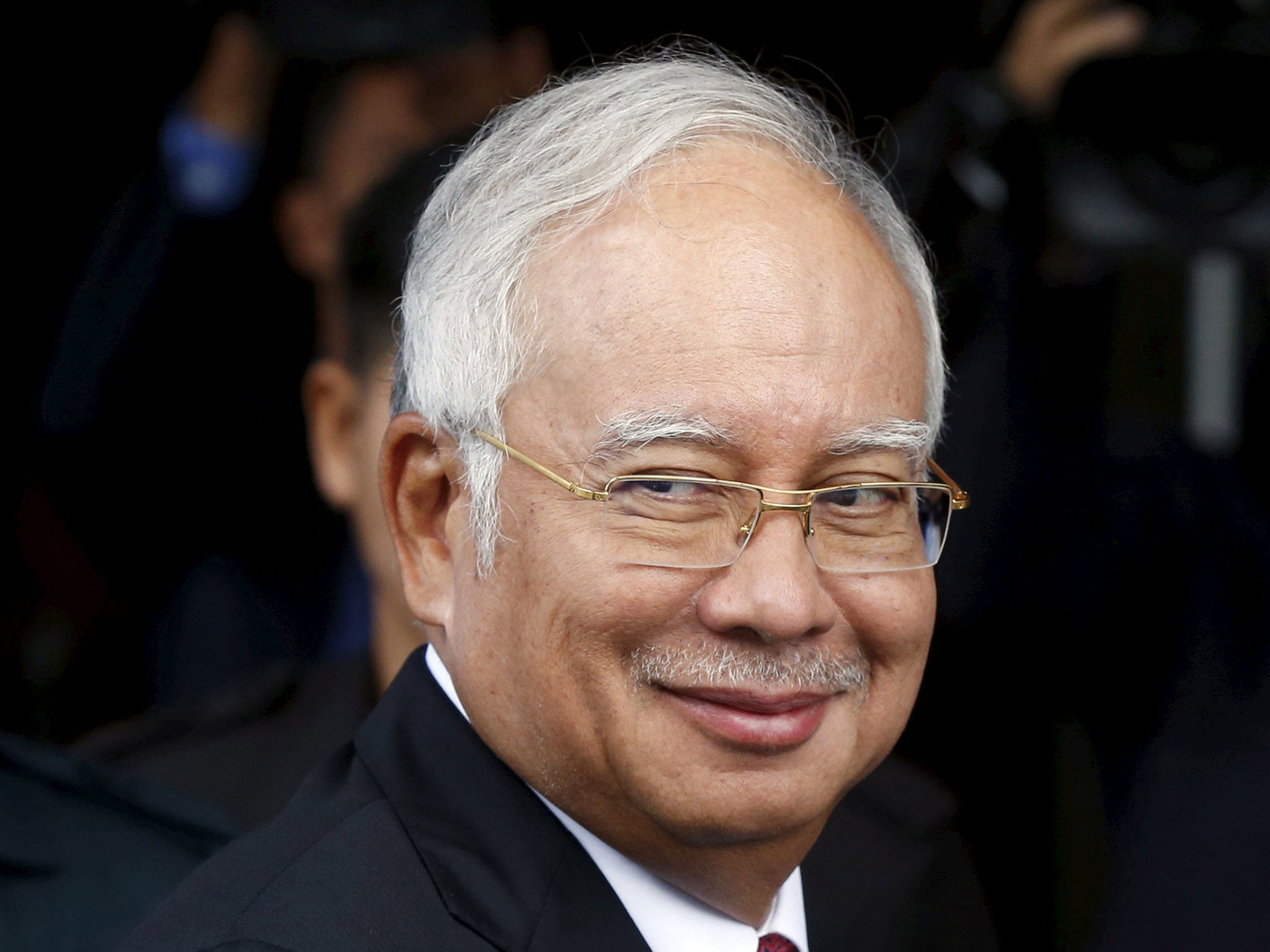Malaysia concedes on PM's payment allegations – but the excuses, and harassment, go on
Malaysians are gasping at what their leaders are now asking them to swallow

The announcements by Malaysia’s Prime Minister and his newly appointed attorney general (the last one got sacked after taking a less forgiving view of his bosses’ actions) provide a welcome, if indirect, vindication of my reporting of what I described as a “massive corruption scandal” over the past few months.
The Malaysian authorities have confirmed some of my core allegations: that $681m was paid into Najib Razak’s private bank accounts before the 2013 election, and that a further sum equivalent to more than $10m was channelled into another of his private accounts from a public company, SRC International, that he controlled, and which raised money from a public pension fund.
Now Mr Najib has come up with a series of risible excuses for these extraordinary admissions, which his loyal attorney general has chosen to believe. Whether these absolve him in public opinion is another matter entirely however, since Malaysians are gasping at what their leaders are now asking them to swallow.
First, Mr Najib’s excuse for the $681m is that an anonymous Middle Eastern donor, now said to be a Saudi royal family member, wanted to help him win the election and sent the money, no strings attached. As for the further $10m, the Prime Minister says he believed it too came from the so-called “donation”. But, as weary Malaysians observe, Mr Najib originally swore that he had taken no money for personal use. Very little adds up, in fact.
A more plausible explanation for Mr Najib’s windfall, and in fact where this story begins, could relate to my blog Sarawak Report’s revelations early last year, documenting how billions of dollars missing from Malaysia’s now floundering development fund 1MDB ended up in the personal accounts of a Malaysian-Chinese businessman, regarded as Mr Najib’s proxy.
I published a comprehensive money trail, which showed that almost $2bn from 1MDB’s original investment in a UK-based Saudi company was funnelled into the businessman’s Swiss bank account, and from there to Singapore, between 2009 and 2010. The deal is currently being investigated by the FBI and the Serious Fraud Office.
It did not help Mr Najib’s cause that the youthful businessman went on a spending spree immediately afterwards, including extravagance in some of the world’s top nightspots. Public uproar over that sparked the official investigations that threw up the evidence about the later payments into Mr Najib’s own Kuala Lumpur accounts.
These payments came hard on the heels of 1MDB’s next series of questionable investments in 2012-13, linked to one of Abu Dhabi’s sovereign wealth funds. 1MDB borrowed $6.5bn for these vague projects, much of which has fallen off the books between the accounts of the two funds.
When the official investigations arrived at Mr Najib’s own front door with my stories on these payments in July, the real Malaysian crisis took off. Mr Najib sacked his Deputy Prime Minister and several other Cabinet members, and dismantled four separate investigations into the 1MDB affair. Civil servants were arrested and questioned, and some were sacked. A prosecutor who drew up draft charges against the Prime Minister – and leaked them to me – was abducted, and was later found murdered.
My blog has been banned in Malaysia and draconian new press laws have curbed once relatively independent online media. In July, Malaysia issued a warrant for my arrest for “activities detrimental to parliamentary democracy”, but Interpol has declined to get involved. Meanwhile, I have been followed and harassed in London by unknown photographers, and my computers and emails hacked.
Despite all this, Malaysian authorities produced not one example of false reporting on my part – only various excuses for what I have brought to the public’s attention.
Join our commenting forum
Join thought-provoking conversations, follow other Independent readers and see their replies
Comments
Bookmark popover
Removed from bookmarks